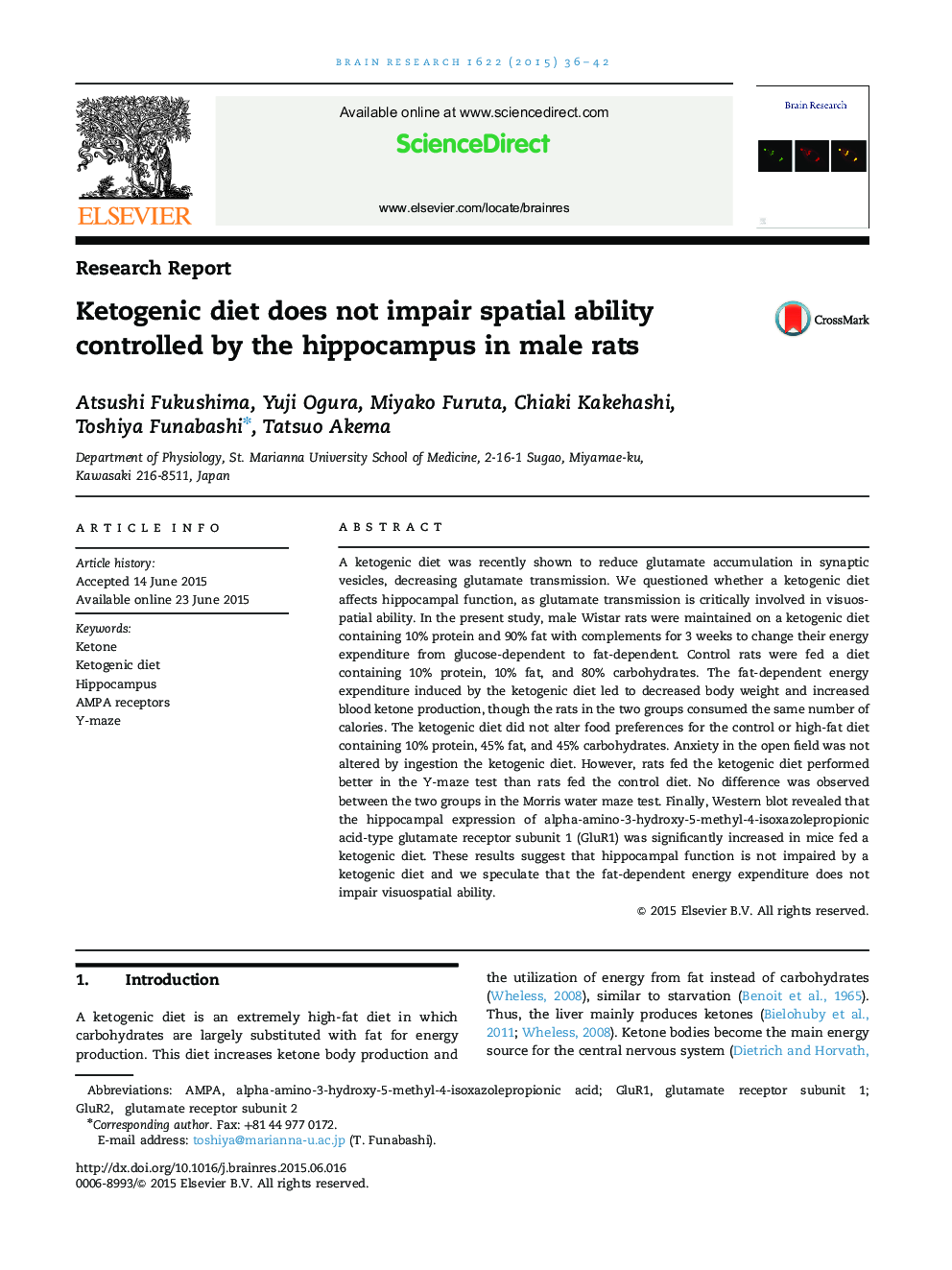| Article ID | Journal | Published Year | Pages | File Type |
|---|---|---|---|---|
| 6262935 | Brain Research | 2015 | 7 Pages |
â¢We questioned whether ketogenic diet affects hippocampal function.â¢This diet did not alter the anxiety-related behavior.â¢Some aspects of hippocampal function are affected by ingesting a ketogenic diet.â¢Ketogenic diet does not impair hippocampal ability.
A ketogenic diet was recently shown to reduce glutamate accumulation in synaptic vesicles, decreasing glutamate transmission. We questioned whether a ketogenic diet affects hippocampal function, as glutamate transmission is critically involved in visuospatial ability. In the present study, male Wistar rats were maintained on a ketogenic diet containing 10% protein and 90% fat with complements for 3 weeks to change their energy expenditure from glucose-dependent to fat-dependent. Control rats were fed a diet containing 10% protein, 10% fat, and 80% carbohydrates. The fat-dependent energy expenditure induced by the ketogenic diet led to decreased body weight and increased blood ketone production, though the rats in the two groups consumed the same number of calories. The ketogenic diet did not alter food preferences for the control or high-fat diet containing 10% protein, 45% fat, and 45% carbohydrates. Anxiety in the open field was not altered by ingestion the ketogenic diet. However, rats fed the ketogenic diet performed better in the Y-maze test than rats fed the control diet. No difference was observed between the two groups in the Morris water maze test. Finally, Western blot revealed that the hippocampal expression of alpha-amino-3-hydroxy-5-methyl-4-isoxazolepropionic acid-type glutamate receptor subunit 1 (GluR1) was significantly increased in mice fed a ketogenic diet. These results suggest that hippocampal function is not impaired by a ketogenic diet and we speculate that the fat-dependent energy expenditure does not impair visuospatial ability.
